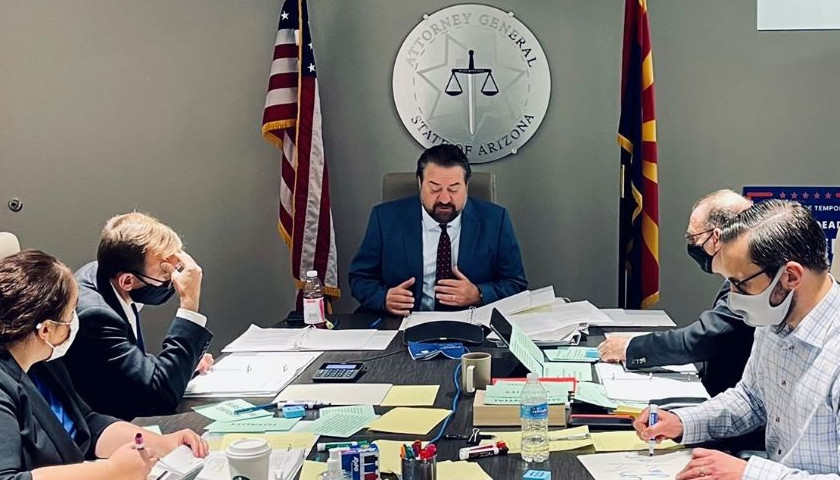Arizona Attorney General Mark Brnovich (R) recently announced that Arizona is joining a nationwide Anti-Robocall Task Force (ARTF) with 50 attorneys general to investigate telecommunication companies responsible for bringing in foreign robocalls to the United States.
“Foreign robocalls have become a threat to our privacy and security, and they need to be stopped,” Brnovich said in a press release. “Our bipartisan coalition seeks to end these illegal and unwanted calls and ensure that offenders are held accountable.”
The Attorney General’s office (AGO) revealed that the ARTF has so far issued 20 civil investigative demands to 20 gateway providers and other entities that may be responsible for a majority of foreign robocalls. These providers are responsible for bringing foreign traffic into the U.S. telephone network and must ensure that traffic is legal. However, the AGO alleged that some of them intentionally turned a blind eye to these scammers for additional revenue.
The AGO shared that more than 33 million scam calls occur on a daily basis across the country, and in 2021, scammers stole an estimated $29.8 billion from Americans.
The National Consumer Law Center (NCLC) shared that providers are continually getting away with transmitting fraudulent calls.
“Even when these providers are told—sometimes repeatedly—that they are transmitting fraudulent calls, they keep doing it, because they are making money from these calls,” said Margot Saunders, senior attorney at the National Consumer Law Center. “And even when they are caught and told to stop, they are not criminally prosecuted, and the fines that are levied are rarely collected.”
Furthermore, because robocalls have become so pervasive, 70 percent of Americans do not answer the phone when receiving a call from an unknown number.
According to the Robocall Index, 549.5 million robocalls have been made in Arizona so far in 2022, an average of 78 per person.
AZ Family reported that Arizona is among the states that receive the most robocalls, joined by Texas, Florida, and Georgia. A report from T-Mobile revealed that scam calls drop by 80 percent during the weekend, and most scammers send calls Monday-Friday. Trends also saw a drop in scam calls around holidays, with Easter weekend having the lowest scam volume of the year.
According to the AGO, some of the tactics scammers use are using a fake caller ID to appear as a local caller, making themselves appear more trustworthy by claiming to be a veteran or Christian, presenting a “too good to be true” offer, or pretending to work for the government or credit card company.
Brnovich said that to avoid getting scammed, people should never give out personal information to unsolicited callers, no matter who they claim to be. Everyone should immediately hang up on anyone who asks for money and report the call immediately.
Anyone who fears they have been the victim of a robocall scam can file a consumer complaint with the AGO here.
– – –
Neil Jones is a reporter for The Arizona Sun Times and The Star News Network. Follow Neil on Twitter. Email tips to [email protected].
Photo “Mark Brnovich” by Attorney General Mark Brnovich.








